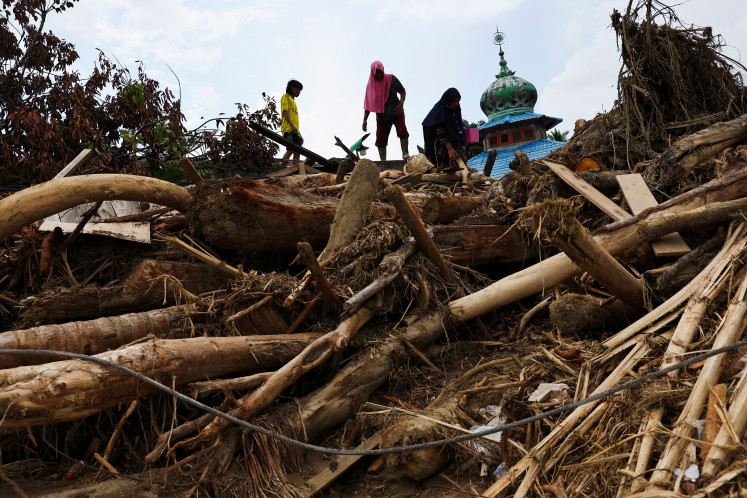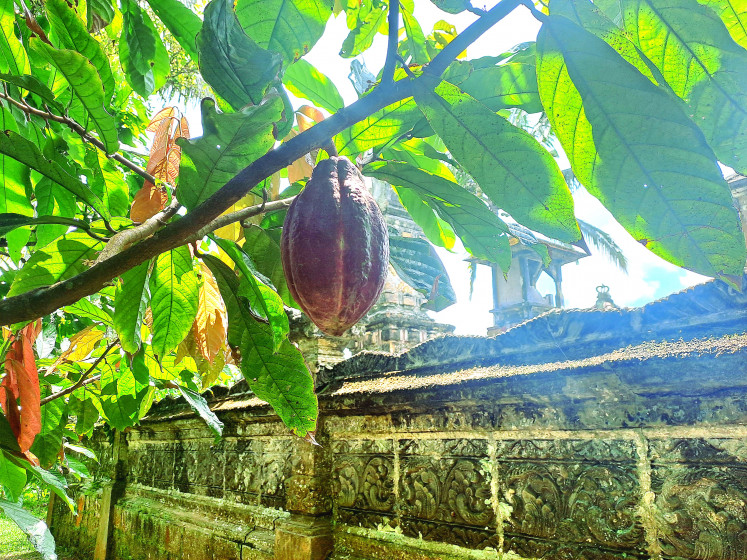Popular Reads
Top Results
Can't find what you're looking for?
View all search resultsPopular Reads
Top Results
Can't find what you're looking for?
View all search resultsRI upbeat over its progress in ASEAN single market
Indonesia’s customs and excise office is upbeat that it has achieved notable progress in its effort to integrate its market with neighboring countries under the Association of Southeast Asian Nations (ASEAN)
Change text size
Gift Premium Articles
to Anyone
I
ndonesia’s customs and excise office is upbeat that it has achieved notable progress in its effort to integrate its market with neighboring countries under the Association of Southeast Asian Nations (ASEAN).
Finance Ministry customs and excise director general Heru Pambudi said the country had made a series of attempts, particularly ratifying the Kyoto Convention on the simplification and harmonization of customs procedures, in order to fulfill global customs standards.
“We have complied with all the international [customs] standards,” he said recently.
Heru further said that standardized customs procedures would benefit whole ASEAN members, citing reduced tariffs on imported goods enabled by the ASEAN Free Trade Area (AFTA), from which Indonesia had benefitted.
ASEAN is finalizing two agreements that will further facilitate standardization of trade procedures among its 10 members, namely the ASEAN Harmonized Tariff Nomenclature (AHTN), an eight-digit harmonized coding system for traded goods and e-commerce facilitation.
Spokesperson at the customs and excise office Deny Sujantoro said Indonesia had finished its tasks for the AHTN last April.
“We are now still waiting for Laos and Singapore to agree on it,” he said.
ASEAN recently received assistance from the European Union, which created a single market among its
members much sooner than the former, to help push its market integration further.
The 28-member bloc will spend €61 million (US$75 million) in six years to execute two development cooperation initiatives with its regional partner — the Enhanced ASEAN Regional Integration EU-ASEAN Dialogue Instrument (E-READI) and the Enhanced ASEAN Regional Integration Support from the EU (ARISE Plus).
EU Ambassador to ASEAN Fransisco Fontan Pardo said that as one of the largest foreign investors in Southeast Asia, the EU could not deny the need for an integrated market, especially with the growing presence of European private companies in the region.
“More cohesive and more homogeneous regulations [among ASEAN countries] will help any business people to expand their business [there],” he said during a recent press conference.
The EU currently accounts for around 13 percent of foreign investment in ASEAN, making it the second-largest investor after China.
Meanwhile, ASEAN is the EU’s largest trade partner outside Europe, with trade totaling €201.7 billion in 2015.
The ongoing trade activities have been favorable for the Southeast Asian countries under the grouping as they posted a trade surplus in the last 12 years.
In 2015, for instance, the EU recorded a deficit as its imports from ASEAN stood at €121 million, in contrast to its exports of only €85 million.
Fontan further said that a better integrated market system would also help ASEAN members, especially the least developed ones, to compete with the others.
“Hence, the EU will pay more attention to the implementation of the programs in Cambodia, Laos, Myanmar and Vietnam,” he added.
Under the Master Plan on ASEAN Connectivity (MPAC), the programs seek to establish sustainable infrastructure, digital innovation, seamless logistics, regulatory excellence and people mobility.
ARISE Plus team leader Paul Mandl said there were three key elements that the EU would focus on to assist ASEAN to create a single market, namely common standards and a system for products, a seamless transport of goods among countries and transparency for the private sector.
Pharmacy and food regulation would be the initial targets to be harmonized between ASEAN countries, he further said. The EU observed that the food sector did not get a lot of attention from ASEAN, although the food issue was sensitive, Mandl added.
“Hence, we started by producing strategic guidance, a regulatory framework, and harmonizing the regulations,” he said.
The EU will, among other things, set up a database of goods that are exempt from import duties and as a result, private companies would know the zero-tariff products that will be treated indifferently by ASEAN members.










